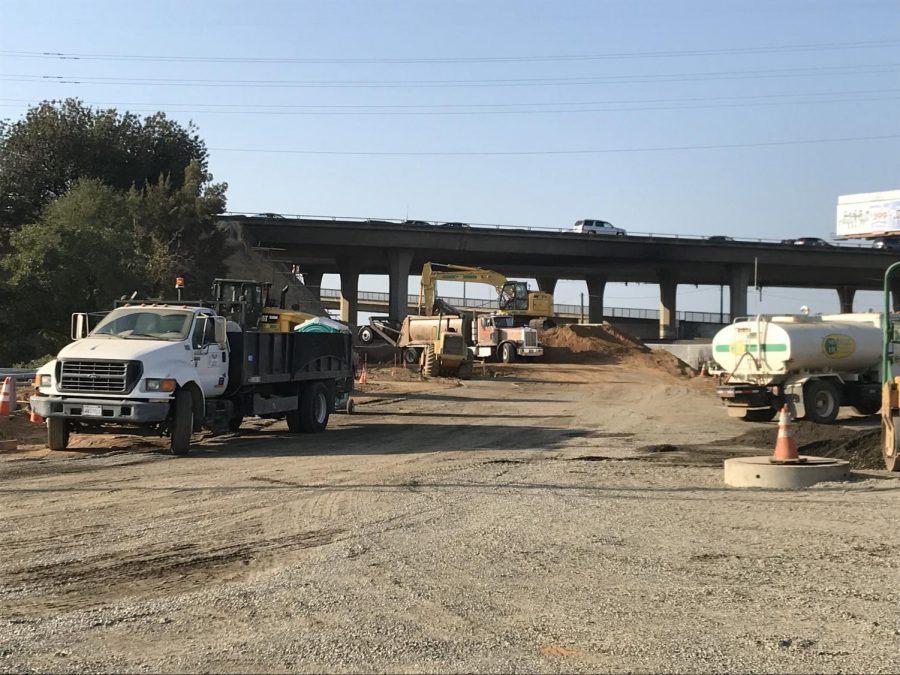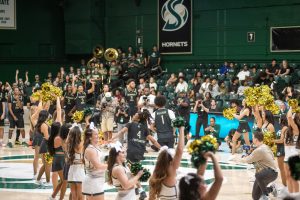Notice a little extra traffic around campus? Here’s why
Construction on Folsom Boulevard may cause delays through October, University officials say
Claire Morgan – State Hornet
Construction crews works on the Ramona Avenue extension project off of Folsom Boulevard. Two construction projects – the Ramona Avenue extension and the Elvas Avenue road widening project – may cause heavy traffic on Folsom Boulevard through the semester.
September 10, 2018
The first week of the fall semester is historically a week with more traffic than normal — but this year, it posed a risk unseen in previous years.
An unsigned SacSend message from the Office of the Vice President for Administration warned of construction projects on Folsom Boulevard causing traffic jams.
“Traffic lane shifts, closures, and one-way flagging will cause additional congestion through the work zone,” the message said.
There are currently two projects — a Ramona road extension on to campus and an Elvas Avenue road widening project — that are causing construction on Folsom Boulevard, according to Phillip Vulliet, a civil engineer for the city of Sacramento.
The Ramona Avenue extension project will be a new crossing into the south side of the campus that will pass under Highway 50, according to Vulliet.
Vulliet said that the project has been in the making since 2001, but the owners of The Crossings, a new student housing complex, “have been a big proponent, and have helped push the project along.”
The Elvas Avenue project will add continuous bike lanes down Folsom Boulevard, and will widen the road in order to provide on-street parking and continuous bike lanes, he said.
Construction started in May and will continue into the end of the semester, according to Vulliet.
Vulliet said he anticipates some very heavy traffic around Folsom Boulevard for the next two to three weeks as the semester gets started, but the city has put up more cameras in order to monitor the flow of traffic in order to combat major jams.
“It’s probably a good idea to take alternative routes,” Vulliet said. “Tuesdays and Thursdays are much worse than Monday, Wednesday, Friday, but we’ll see.”
University Transport and Parking Services spokesman Tony Lucas recommended that those who normally take Folsom Boulevard should take Highway 80 to the Howe Power Inn exit in order to avoid congestion.
Lucas also urged those trying to access campus to take alternative transportation methods — biking, light rail or buses — in order to avoid traffic and parking struggles.























































































































